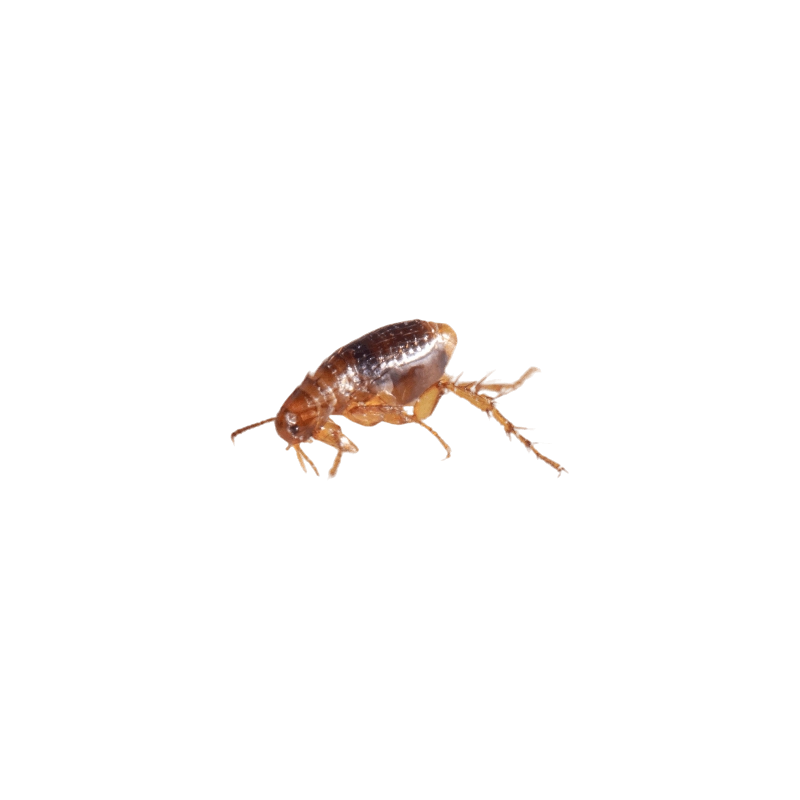
Fleas are small, wingless insects that are visible to the human eye. Their dark brown appearance makes them stand out in specific environments. While fleas don’t have wings, they maneuver around by jumping at moderate distances using their hind legs. You may also identify fleas by their white larvae and protruding hair on their body.
Some other key characteristics to look for include:
Fleas often enter people’s homes due to overly damp weather. The most common factor in a flea entering your home is whether you have a household pet. Fleas can attach themselves to pets as they waltz back into your home, frequenting pet beds and household cracks/crevices.
Fleas can come from many places around the world. They thrive by laying eggs on warm-blooded animals and live in areas where they can find hosts. Fleas prefer warmer temperatures with high humidity. Fleas attach themselves to common household pets if exposed to extreme wet weather conditions.
Fleas rely on warm-blooded hosts for sustenance. Adult fleas have mouthparts that pierce the skin of a host and suck their blood. You may notice when you have a flea bite, as they cause irritation or even serious infections. In addition, flea larvae feed on skin particles, hair, and adult flea feces.
Fleas undergo four distinct stages during metamorphosis:
Once a flea has reached the adult stage, it can live up to a year. However, most fleas live a typical lifespan of 30 to 90 days.
Adult females will lay eggs on their host after consuming blood. Depending on the conditions, eggs can take as short as 2 days or as long as 12 to hatch. Newly hatched fleas spend up to 200 days in the larval stage before they pupate. The pupal stage can last anywhere between 5 and 14 days. If a host is unavailable, the pupae can lay dormant until another host shows up.
If a flea infestation isn’t treated, it can harm people and household pets. In more serious cases, an infestation can make your pet suffer and ultimately kill them. Fleas can also cause medical conditions, including bartonellosis, feline anemia, and flea allergies.
If fleas can’t find a host right away, they’ll try to latch on to the first warm-blooded animal they can find. Historically, fleas are known as the carriers of the plague. Fleas can also transmit rodent tapeworms to pets and even humans.
The most effective way to prevent a flea infestation is to keep the household clean and steam-clean the carpets. Steam cleaning will kill fleas in each developmental stage and reduce the risk of a spreading infestation.
It’s also paramount to inspect your pets for fleas. Vets prescribe medications to treat flea infestations on pets. Contact a pest control professional to ensure the pests have been properly removed from the household.